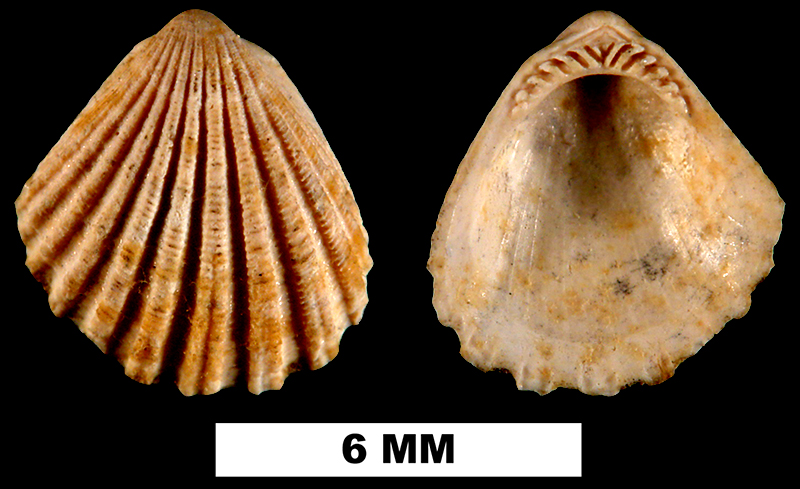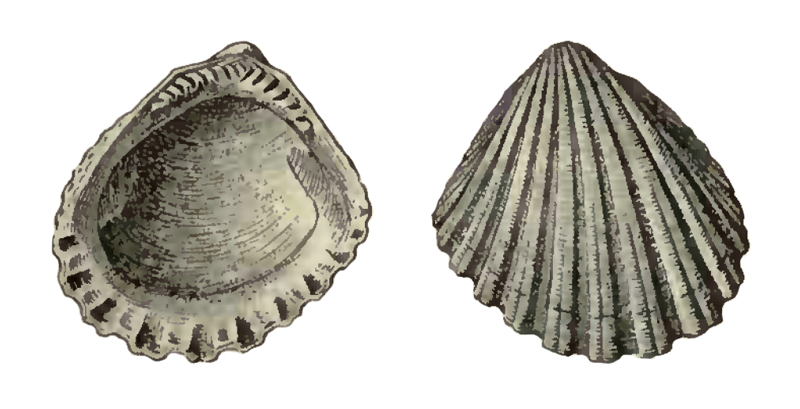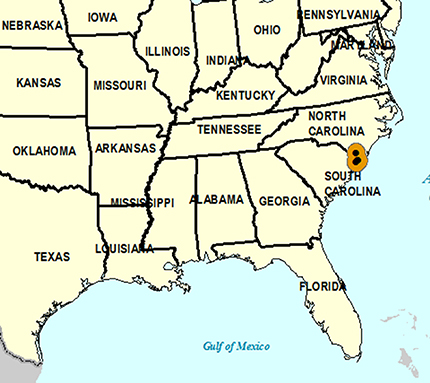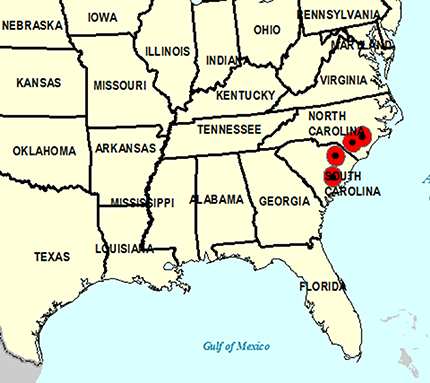
Glycymeris duplinensis
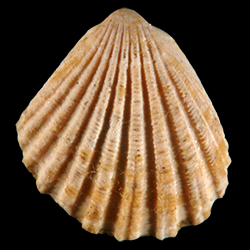
- Phylum: Mollusca
- Class: Bivalvia
- Order: Arcida
- Family: Glycymerididae
- Genus: Glycymeris
- Species: Glycymeris duplinensis (Dall, 1898)
Geological Range
Late Pliocene to Early Pleistocene; Extinct.
Paleogeographic Distribution
South Carolina to North Carolina.
Remarks
Original Description (from Dall, 1898, p. 613):
"Miocene of the Natural Well and Magnolia, Duplin County, North Carolina; Burns.
Shell small, rounded-triangular, solid, moderately convex, with pointed, small, low beaks and a flattened lunular area; sculpture of strong, distally bifurcated radial ribs, separated by slightly narrower channelled interspaces; nine anterior and nine posterior ribs on the lateral slopes are smaller, while on the middle of the shell are about ten larger ribs; transverse sculpture of regularly spaced, elevated concentric lines overrunning the whole shell; cardinal area small and short, with three or four concentric angular grooves; teeth small, vertically striated, six or seven on each side, the line strongly arched and uninterrupted; anterior margin straight, base rounded, posterior slightly arcuate; basal inner margin with about ten flutings. Largest valve, Ion. 9, alt. 10, diam. 6.5 mm.
This pretty little species is readily distinguished from any of the varieties of G. pectinata by its bifurcated and prettily sculptured ribs. It seems to be rather abundant at the locality mentioned."
To access this description in its original formatting through the Biodiversity Heritage Library, click here.
Stratigraphic Occurrences
- Early Pleistocene
- Waccamaw Formation (SC, NC)
- Late Pliocene
- Duplin Formation (NC)
- Raysor Formation (SC)
